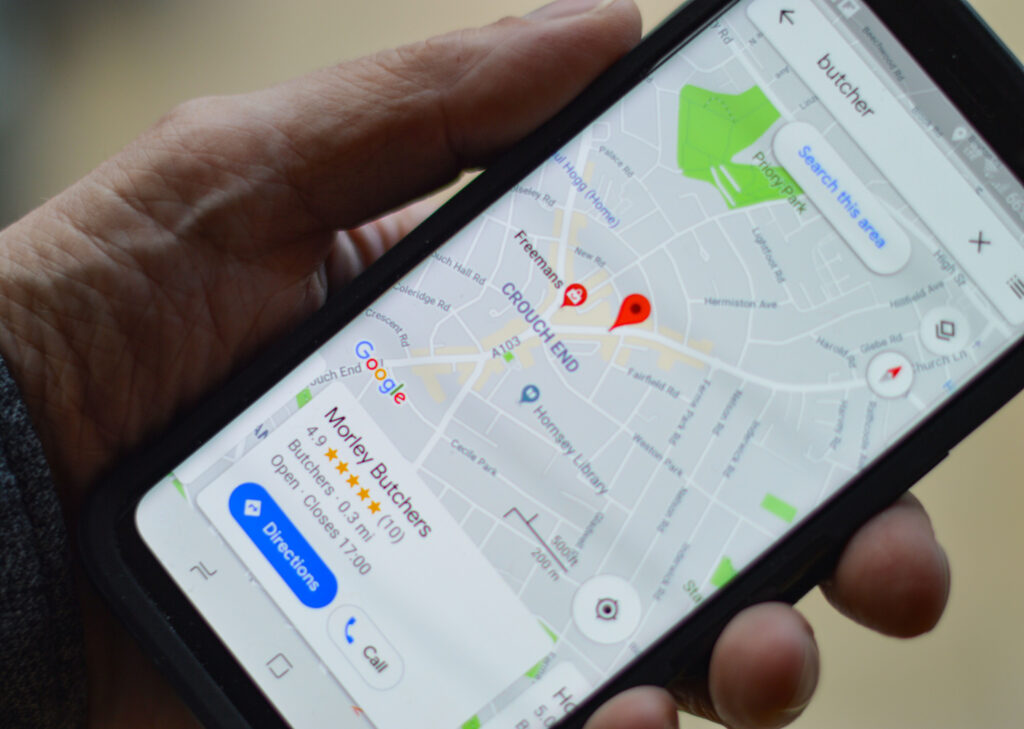Want to Dominate Local Search? It Starts with the Right Keywords.
What if your business could show up exactly when a local customer searches for the services you offer—right at the moment they’re ready to act?
For small businesses, the right local keywords can mean the difference between a steady stream of customers and an empty inbox. These keywords guide local customers to your business exactly when they’re ready to take action—whether that’s booking a service, making a purchase, or walking through your door.
Imagine being the first result a homeowner sees when searching for “emergency water damage restoration in Austin” or “kitchen remodeling in Dallas.” That’s the power of precise, effective local keyword strategies.
In this post, we’ll walk you through the process of finding and refining the best local keywords for your business. From uncovering what your customers are really searching for to implementing strategies that keep you ahead of the competition, we’ve got you covered. Let’s dive in and start building your local SEO success!
What Are Local Keywords?
Local keywords are search phrases that include location-based terms to connect users with businesses in a specific geographic area. For instance, instead of searching “plumber,” users often search “plumber in Dallas” or “best plumbers near me.” These local-specific keywords are your golden ticket to attracting nearby customers.
The Difference Between General and Local Keywords
–General Keyword: “roofing services” (broad search intent, not tied to a location).
–Local Keyword: “Austin roofing services” or “roofing services near me” (specific to an area, intent to find local services).
Why Are They Important?
Local keywords significantly boost your visibility in searches performed by nearby users. When optimized correctly, they bring highly-qualified leads to your business—people who are actively seeking your services.
Pro Tip: Did you know that “near me” searches have skyrocketed, particularly on mobile devices? Optimize for phrases like “best Italian restaurant near me” to tap into this trend and capture motivated customers.
Step Into Your Customer’s Shoes: Understand Local Search Intent
How People Search Differently for Local Businesses

Consumers looking for local services are usually further along in the buying journey. Unlike someone broadly researching a national service, they often have an immediate need (“I need a pest control service in Houston today”).
Understanding Search Intent
–Informational: The user wants to learn (e.g., “how to unclog a drain”).
-Navigational: The user wants to find a specific place or website (e.g., “Rep Lock Marketing Austin location”).
-Transactional: The user is ready to take action (e.g., “book HVAC services in Dallas”).
Your goal is to target transactional queries because they’re the ones most likely to convert into sales.
Examples of Local Intent in Specific Industries
-Plumbers: “emergency plumbing near me,” “plumbing services Chicago.”
-Pest Control: “eco-friendly pest control Madison,” “exterminators near my home.”
-Remodeling: “kitchen remodel contractor Austin.”
Once you understand these intents, you can tailor your keyword strategy accordingly.
Digging Into the Data: Tools to Identify High-Impact Local Keywords
Keyword research is the backbone of an effective SEO strategy. Fortunately, there are plenty of tools to help you uncover keywords that drive both traffic and conversions.
Free Tools to Start With
-Google Keyword Planner: Analyze search volume and competitiveness for keyword ideas.
-Google Business Profile Performance: Get insights into how people are finding your business locally.
-Ubersuggest: Offers a user-friendly interface to discover keyword opportunities.
Pro Tip: Use Google’s Autocomplete feature to uncover common queries. Type in a partial search like “best remodeling services in…” to see what locations or modifiers pop up. Don’t forget to check the “People Also Ask” section for additional ideas!
Paid Tools for Advanced Research
–SEMrush: Analyze keywords and track competitors’ SEO strategies.
–Ahrefs: Dive deep into search volume, competition, and keyword ranking difficulty.
–KWFinder: Excellent for honing in on location-specific long-tail keywords.
Read more: Google Business Profile Basics: How to Improve Your Google Search Results
Location-Specific Keywords: Finding the Perfect Balance
Including your city, neighborhood, or notable landmarks within your keywords can make a huge difference. These hyper-local phrases tell Google exactly where your business operates.
How to Structure Keywords for Maximum Impact
Combine specific services with your location:
– [Service] + [City]: “Pest control in Austin”
– [Service] + [Neighborhood]: “Plumbers in East Dallas.”
Avoiding Pitfalls
It’s tempting to focus solely on unlikely low-competition keywords, but watch for ones too niche or rarely searched. You need to strike a balance between relevance, search volume, and competition.
Spy on the Competition: Analyzing What Works for Rivals
How to Identify Competitors
Search for high-ranking local businesses within your industry and take note of recurring names.
Tools for Competitor Keyword Research
–SEMrush and Ahrefs: These tools analyze which keywords drive competitors’ traffic.
-Google Search: Identify what meta tags and keywords dominate competitors’ landing pages.
What to Look For
Analyze keywords and phrases your competitors thrive on. Are they focusing on broad terms or long-tail, location-specific keywords? Learn from their success—and avoid their mistakes.
Long-Tail Keywords: The Hidden Gem for Local SEO Success
Long-tail keywords often mean less competition and higher conversion rates. These are longer, more specific search queries that mirror how people actually speak.
Examples
Instead of targeting “roofers,” refine it to:
– “affordable roof repair in Austin”
– “emergency roofers near South Austin.”
How to Find Long-Tail Keywords
– Use Google Autocomplete to explore variations.
– Check forums or community groups for language customers use when describing their needs.
Creating a Keyword Strategy for Your Local SEO Domination
Prioritizing Keywords
Focus first on keyword phrases with:
1. Relevant intent (transactional over informational).
2. Low to medium competition.
3. High local relevance.
Mapping Keywords to Website Pages
-Homepage: Broad city or service-specific keywords (“Top Plumbers in Austin”).
-Service Pages: Target service keywords (“drain cleaning services Winter Park”).
-Blog Content: Use informational, long-tail keywords to bring traffic (“Tips for finding the best heating repair near you”).
Pro Tip: Optimize for voice search! Many local searches begin with phrases like “Where can I find…” or “What’s the best…” Structure content that addresses questions directly.
Track, Tweak, and Thrive: Measuring Keyword Performance
Once your keywords are live, continuous tracking will ensure you’re on the right path.
Tracking Tools
-Google Search Console: Monitor keyword performance and click-through rates.
-Local Falcon: Specialized for tracking local keyword positions.
-Ahrefs/SEMrush: Run regular audits to assess growth and opportunities.
Key Metrics to Watch
-Click-Through Rate (CTR): How often users click on your site after seeing it in search results.
-Bounce Rate: High rates may indicate a mismatch between search intent and your content.
-Keyword Rankings: Monitor changes in your local keyword rankings over time.
Fine-Tune Your Strategy
If a keyword isn’t performing, experiment with new variations, or adjust your content for improved relevance. SEO is an ongoing process!
Conclusion
Optimizing your business for local search starts with choosing the right keywords. By focusing on location-specific phrases, understanding search intent, and continuously refining your strategy, you can stand out in your community and win your customers’ trust. With these tools and tactics, you’ll have everything you need to lock in your reputation and unlock your business’s potential.
Want expert help crafting a winning SEO strategy? Contact Rep Lock Marketing today to transform your local visibility and grow your business.
Bonus Section: Local Keyword FAQs
What Are Local SEO Keywords?
Local SEO keywords are phrases designed to connect users with businesses in a specific area. Examples include “best HVAC services in Austin” or “coffee shops near me.”
How Long Does It Take to See Results with Local Keywords?
SEO is a marathon, not a sprint. You may see initial improvements in 1–3 months, but sustained growth usually happens over 6–12 months with consistent effort.






